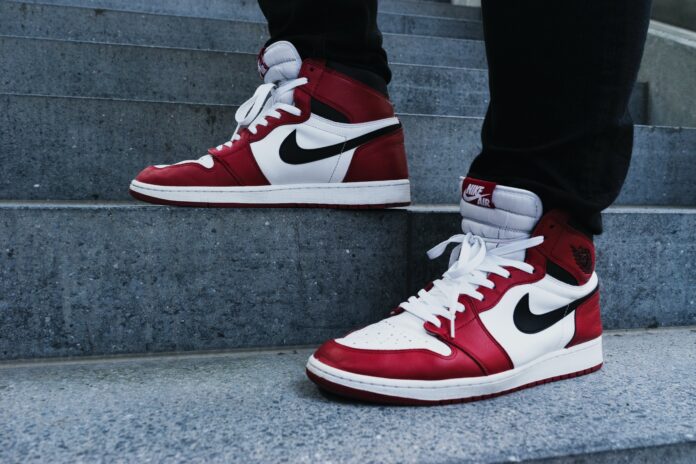Consider this before choosing your next workplace or gym clothing.
Your outfit may give you a tremendous feeling
According to a research published in Social Psychological and Personality Science, the “power tie” exists. Researchers had participants dress up in formal business clothing and participate in a series of five trials that tested their cognitive processing ability. Those who dressed up felt far more powerful and in command of the situation than their less-dressed counterparts. So wearing cool clothes or/and sneakers like Air Jordans 1, gives you more confidence.
Your wardrobe can help you think more clearly.
The study discovered that respondents who dressed in business formal apparel could think faster on their feet and had more innovative ideas, in addition to feeling more powerful. The scientists hypothesized that how you dress might alter your perception of the items, people, and events around you, stimulating new thoughts and perspectives.
Your apparel might make exercising more difficult (but make it feel easier)
Athletes wearing red clothes won more events at the 2004 Olympic Games than their blue counterparts, prompting academics to investigate if this was a coincidence or if there is anything unique about the color red. The study, published in the Journal of Sport and Exercise Psychology, discovered that people who exercised in red were able to lift heavier weights and had higher average heart rates, indicating that they were working harder than those who exercised in blue, despite reporting similar levels of exertion.
But, before you throw out your blue training clothing, keep in mind that the researchers did not discover that the red-clad athletes won more often. Learn what else your wardrobe color reveals about you.
Your wardrobe can influence your intelligence.
According to a research published in the Journal of Experimental Social Psychology, wearing apparel associated with intellect, such as doctor’s jackets or pilot’s uniforms, may not only make you seem better but also help you act smarter. Subjects (none of whom were physicians) were given doctors’ lab coats and instructed to complete a series of complicated tasks. Those wearing white jackets made much fewer errors than those wearing regular clothing. The scientists again repeated the experiment, except this time they handed all of the volunteers lab jackets.
However, half of the participants were told they were doctor’s jackets, while the other half were told they were paint smocks. Again, persons with “doctor’s jackets” fared higher on the tests, demonstrating that it’s not only what you wear that matters, but also what you think about what you wear.
Your wardrobe can help you focus.
When it comes to many vocations, being able to focus on a task, especially when it’s dull, is half the fight. According to the same lab coat research, persons wearing “smarter” doctor’s lab coats were able to focus harder and longer than those who thought they were only wearing a painter’s smock. Because we know that physicians “tend to be meticulous, diligent, and adept at paying attention,” when we behave like a physician, we embrace some of those qualities—almost as if we’re attempting to live up to the outfit’s expectations.
Your wardrobe can help you go where you want to go.
This one is for people who despise arguing over the price of a car or negotiating a property deal. (Doesn’t everyone say that?) Clothing can give you an advantage in an argument, according to study published in the Journal of Experimental Psychology. The participants were separated into three groups: They wore either a suit or sweatpants, or they were permitted to wear their own clothes. They were then placed in a negotiation situation. People who were well dressed frequently outperformed those who were not. Even more intriguing, the males in sweats had lower testosterone levels, which lowered their hostility even further.
Your wardrobe can influence your honesty.
According to a Harvard research published in Psychological Science, wearing knock-offs may have a surprising side effect. Researchers handed individuals expensive new sunglasses, informing half of the group they were designer and the other half they were fake. Those who wore the knock-offs were more prone to cheat in the following game and were more suspicious of other players. Wearing false apparel, it turns out, might make you feel like a fake—and make you think everyone else is, too.
Your wardrobe might motivate you to exercise.
So you want to workout but can’t seem to find the motivation? Researchers, try dressed for the part. Wearing running shorts and shoes first thing in the morning is more than just a comfortable way to conduct errands; seeing oneself in athletic attire can inspire you to go the gym on your way home from the shop.
Clothing might cause you to lose weight.
Wearing a snug-fitting pair of jeans, tightening your belt, or even tying a ribbon around your waist beneath your clothing might send a subconscious signal to your brain to stop eating as soon as you are full. “When going out to dinner, some French ladies put a ribbon around their waist and underneath their clothes,” fitness expert Valerie Orsoni says. “It keeps them aware of their stomach—especially if the ribbon starts to feel tighter as the evening progresses!”







